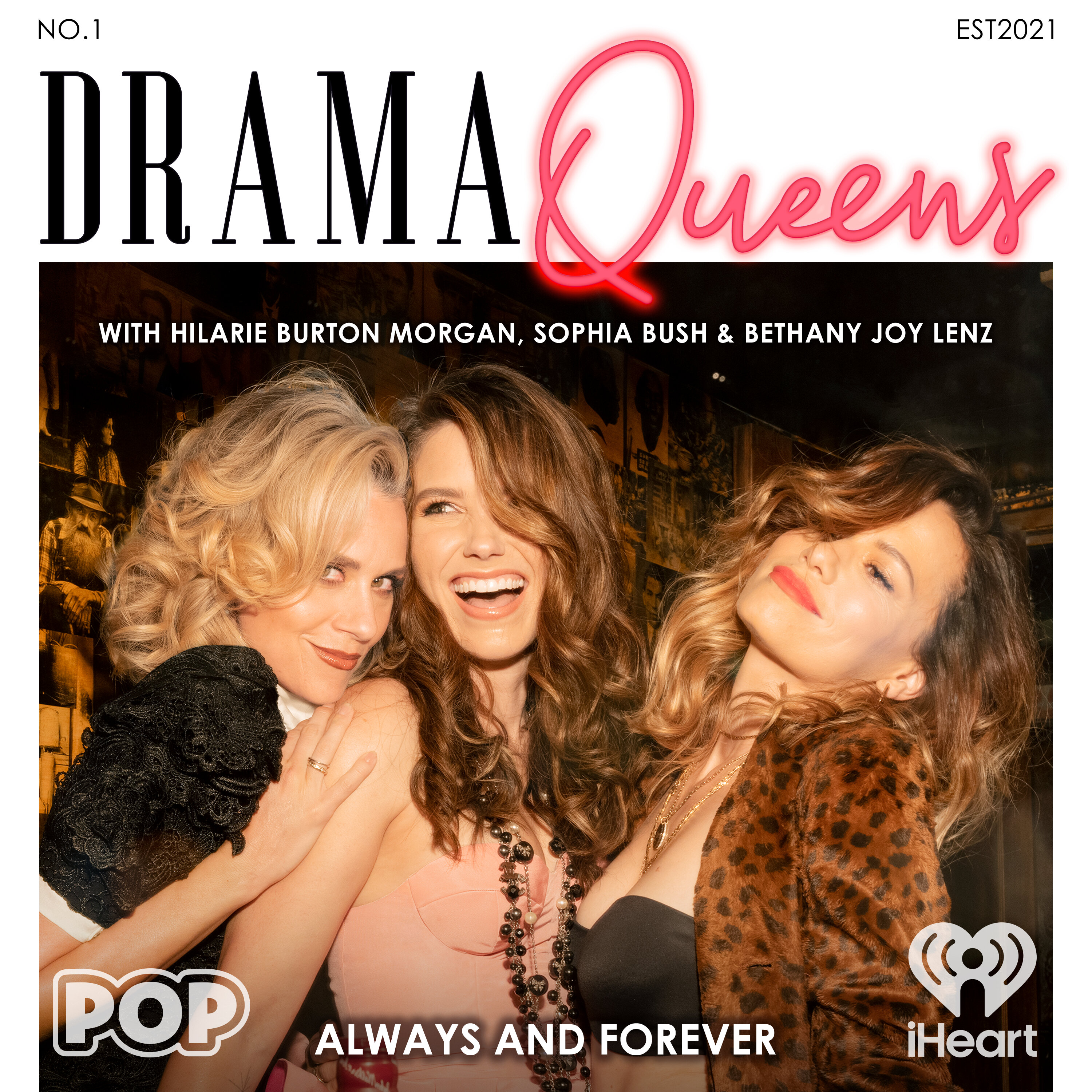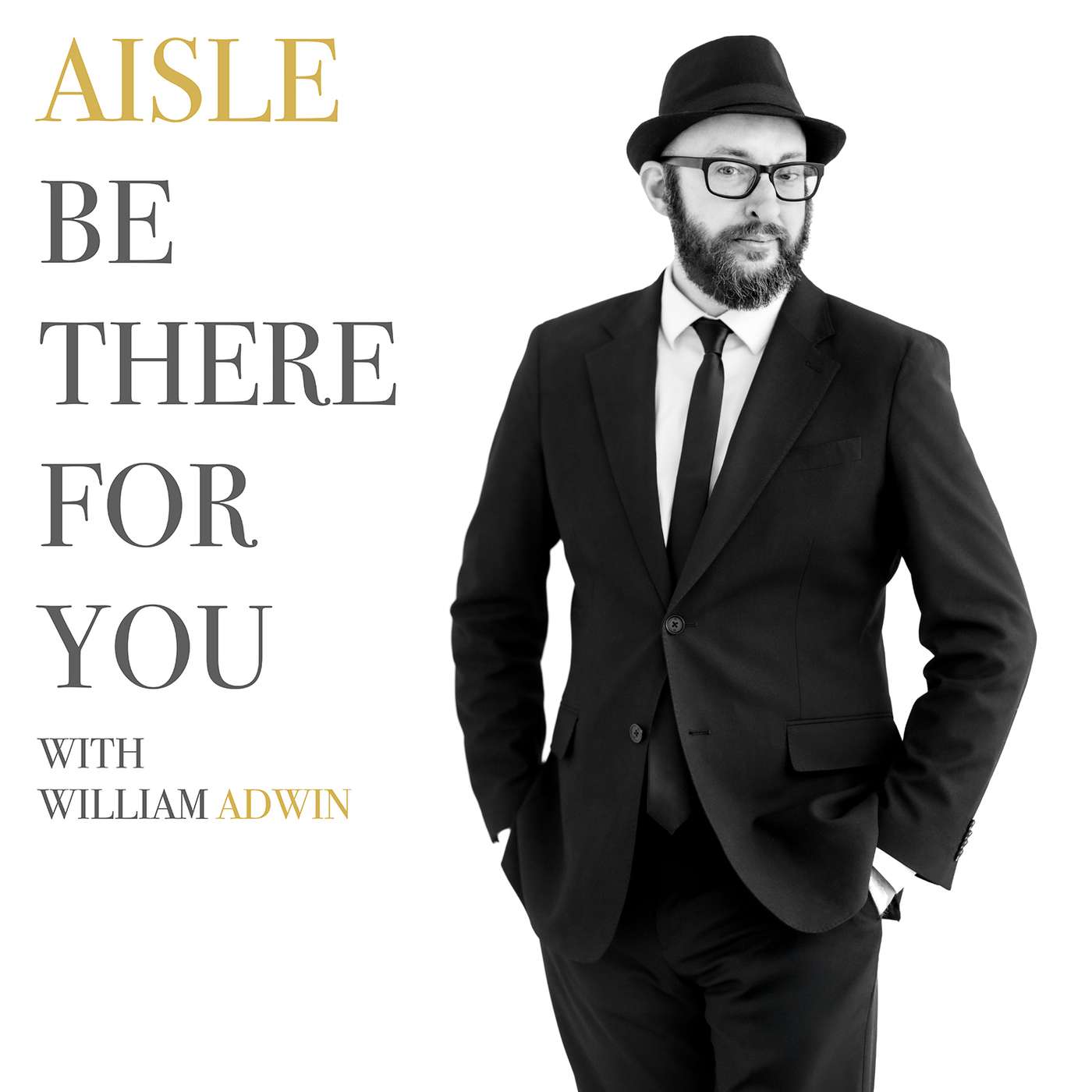
The Wedding Where...
Join me, Amanda, owner of Officiating by Amanda, as I share stories of weddings I've officiated and lessons I've learned, advice for the dating, engaged or married, reactions to wedding ceremonies in movies and TV shows, special guests from the wedding industry sharing their stories, behind the scenes interviews with some of my couples, and the answers to your questions. With 10 years under my belt, I've got many, many tales to tell!
The Wedding Where...
Bonus Episode - Unveiling Wedding Traditions!
Send me a message or any questions!
Wedding traditions carry the weight of generations past, but do they still serve today's couples? That's the exciting journey we embark on in this episode of The Wedding Ware, where we explore how time-honored customs can be reimagined, refreshed, and sometimes respectfully retired.
From the classic "something old, something new, something borrowed, something blue" to the father walking his daughter down the aisle, we dive into the origins of these traditions and how they've evolved. Did you know the practice of "giving away" the bride dates back to times when marriages were essentially property exchanges? Yet today's couples are transforming this moment into meaningful family involvement or even powerful "group giveaways" where the entire community affirms their support of the union. The beauty lies not in rigid adherence to tradition, but in how we can breathe new life into these rituals to reflect our values.
Reception traditions receive equal attention as we discuss the fading popularity of bouquet and garter tosses, alternatives to traditional cake cutting (Twinkies, anyone?), and regional customs like dollar dances. The episode emphasizes that there are no mandatory components to your wedding day—not even religious elements like "dearly beloved" or Bible readings, though many couples include them to honor family traditions. Whether you're planning to have bridesmen, best women, grandparent flower people, or completely reimagined ceremonies, what matters most is that you're creating a day that feels authentically yours.
Have you personalized a wedding tradition in a creative way? I'd love to hear your story! Share how you made these rituals your own, and you might even be invited on a future episode to inspire other couples looking to craft ceremonies that truly represent their unique relationships.
Thank you for sharing the podcast with others who may enjoy it! Share your funny wedding stories with me at theweddingwherepodcast@gmail.com. Any links referenced are on linktree.
Welcome to the Wedding Ware, with officiating by Amanda.
Speaker 1:Welcome back to the Wedding Ware. We're going to do a little bonus today on some wedding traditions how they've shown up, how, if I know anything of how they even got into our, our network, our realm, how they've evolved and how I've seen some couples make them their own. Now, mind you, with any of these you can totally shelve them. They're not needed. The only thing that's needed is two consenting adults, a marriage license if you would like a legal marriage and three legal lines said In the state of Pennsylvania, that's it. Well, and to me, to sign it. Unless you get a self-uniting license, which is another whole thing, I'll have a whole episode about the Quaker license in Pennsylvania, whole thing. I'll have a whole episode about the Quaker license in Pennsylvania. But all the more special touches you put in the traditions of the years gone by, they all are really good little tie-ins, even if it's not to something you necessarily believe in, because it's a little misogynistic or it's old-fashioned, even just at times, knowing it was the same thing that was done at your parents wedding or your grandparents weddings, or your siblings, or like those tie-ins of and that's the same that it was for them. There's something really nice that it's it's almost a ritualistic process that really gives you a good common feel to it. I do have to laugh. I did a wedding a few weeks ago and in vows, probably since early on, I have cut the word obey, love, honor, cherish love and cherish love and honor. Cut the word obey. It's a personal preference. It's been a requested thing by a few couples. It's just very antiquated and old-fashioned to say that you're going to obey your partner and so I don't have it. It's not legally needed, great. And I had a groom who'd been married for 39 years as of that day and he's like they didn't say obey. Oh, I had to say obey in mine. And so as we go through and as traditions change, words adjust over time to be more inclusive and more fitting, there are going to be differences over eras and people will almost be able to pinpoint like oh right, we don't say that anymore, so we're gonna kind of do a high level of the whole day. And these are just some. I would love to kind of dive in a little bit more and maybe do a whole episode on like the morning of and the ceremony.
Speaker 1:Gosh, I could do like 10 episodes on rituals and traditions and a ceremony, and we'll go through the reception, because every part of a wedding is packed with these, and some are centuries old, some are brand new, some were found on TikTok and thought gosh, isn't that just awesome? And are from other cultures, and others are blended. You know, a little old and a little new, but by and large, these traditions and rituals make the wedding feel personal to the couple as they take each of these and add them in. It breathes life into them and makes them their own. Take each of these and add them in. It breathes life into them and makes them their own. So, starting out with some of the things of the morning of, like the wedding prep, the morning of and the ceremony, so again, a really great tradition is something old, new, borrowed and blue for the bride, and I've seen a lot of people go and, you know, have the spouses of the groomsmen be their something blue crew and they ask those women to wear blue dresses. It's not a wedding color but it's a pop out of color in the audience. It makes them feel a little special.
Speaker 1:Again, you're the significant other of a groomsman, or my gosh. Why not? Why stop there? Why not make it the husband of bridesmaids? And just that's your something, blue crew, so that on your dress itself you don't have to maybe add in an additional color?
Speaker 1:Old could be really anything. It could be the veil, it could be jewelry from a family member. It could be a brooch, like Jess our one bride story where she had a brooch that was gifted to her that was her maid of honors grandmother's brooch like our Jess our one bride story where she had a brooch that was gifted to her. That was her maid of honor's grandmother's brooch. Something new, that's easy. I mean the number of things that couples are gifted in preparation for weddings. Yeah, it's not hard to find something new to incorporate into your outfit on the wedding day. I laugh because I've had a few brides who have recently become moms and, yeah, the new was the baby, the baby's new. And then there is something borrowed and once again borrowed. It's more symbolic maybe who you're borrowing it from than it is what exactly is borrowed and where it goes.
Speaker 1:Another tradition in the morning of is the six pence in a shoe, and that refers to the old British tradition of putting a six pence, a coin, into a bride shoe for wealth and prosperity. I actually for my wedding. I'm all right, full disclosure. I'm obsessed with the British royal family. I'm obsessed with all royal families and all royalty. I like things with the lineage. I'm weird, I don't care, but I found an Etsy store that does six pence anklets and so I had one done in lavender, so lavender pearls, and then on the anklet was a beautiful sixpence of Queen Elizabeth II and it was minted for the wedding date, the year and everything. So that was really, really cool and as much as King Charles is fine, I'm very glad that my sixpence was of the Queen, because, yeah, of the queen, because, yeah, let me see another tradition is the bride and groom not seeing each other before the wedding.
Speaker 1:I've seen this do all sorts of everything, everything from we will have zero contact and we will not see each other the night before to. I mean, I can see him up to the point where I get dressed because it's more of him seeing me in the dress, all different iterations of it, and it's all traditionally wise. It's all a bit of superstition of you know. Don't see him before you're at the aisle. What if he runs back to the antiquated times where you almost, like, had an arranged marriage, or you stole the bride, and what if the groom didn't agree? It's really not needed. It does add a fair amount of anticipation for the groom at the end of the aisle and for the bride as she walks down oh, he's gonna see me. Room at the end of the aisle. And for the bride as she walks down I go oh, he's going to see me.
Speaker 1:But I would say, just think about how you would do with that, how your anxiety might be with that, or how the anxiety of your other person might be with that. Because, yeah, there's a lot, a lot of stress that's already going on and if it's going to be more stress than it's worth to be separated, don't do it. Or they will do, they'll do shared notes or something, or they'll each send each other like a picture of just their face through text message morning, of like just knowing I'm still here, I still love you, I'm here. I see at the end of the aisle don't you worry about it that that little touch to provide some support and some comfort can be really, really key. So let's see. So I want to move a little bit through these because, like I said, I could spend days on each of them, but I just wanted to do a little overview.
Speaker 1:So, traditionally, a bride is walked down the aisle way and a lot of times it's asked you know who presents this woman? Who is giving away this woman? In fact it's even called the giveaway, for when there used to be an exchange of the bride for a goat or whatever. That payment or dowry was to the family isn't done anymore, but it is still a really great aspect for involving family members, and I say family members instead of the father of the bride, because that isn't who has to walk you down the aisle. It could be your kids, it could be your parents, both of them. It could be just your mom, it could be you yourself, it could be the best man, it could be the minister, it could be anybody you want, if you want somebody at all.
Speaker 1:And so, starting with that tradition of kind of the giveaway, I just did a wedding where the couple bride walked down with her dad. Only to maybe about 50%. It was like a staircase and then the aisle. So dad walked her down the staircase probably smart because you know heels, dress, yeah. But when she hit the bottom of the staircase, her dad hugged her, he went to his seat and she continued on by herself Strong, independent woman she was, and they loved it. I got to work with the groom on when to have him turn around to get to see her, and that's really wonderful.
Speaker 1:I will do a whole episode on the times where I feel very powerful in weddings and I love it. And when the two of them got to the front of the aisle I had them turn around and face out and everyone was still standing because I had them and I asked for a group giveaway. I said, hey, the answer to this question is we are Okay. Are you ready? Are you ready? Who is here today in celebration of this marriage? And they all yelled we are, and it was great. And then they all sat down and it was a group giveaway. So taking that kind of tradition of the exchange of bride for property then becomes okay. Let's involve everybody in the moment. It's not just one person and it's no longer exchanging property as much as it is celebration. And who is here for this wonderful moment and this achievement? In which case we all are. It's a really, really fun thing and definitely a space where you can make it your own and do what you want to do with it. I could go on for days and days about UND ceremonies and I will, and I will, and I will and I will.
Speaker 1:But other traditions a lot of couples think that they have to have something religious. I'm here to burst that pretty bubble. You do not need dearly beloved, you do not need God bless you, you do not need amen, you do not need 1 Corinthians, you don't need to do the tying of the three chords with the passage about you know, not going to sleep alone because you would freeze to death. Nope, if you want them, I've got a whole arsenal. I'll sprinkle them in, I'll put them in whatever you'd like, but you do not need it.
Speaker 1:Those are all traditions that, if based upon your faith, are really wonderful add-ins, and I've gotten a lot of couples whom it might not necessarily be their religiosity to want a bible reading, but they know what it means to their parents or their grandparents, and so that's where we go back to kind of that. It's a ritual that now stems larger than just their wedding. It ties into the wedding that their parents had, the wedding that their grandparents had, and it's that common thread that comes down in and that's where a lot of times I'll get a couple that will say we're not really religious, but we want 1 Corinthians 13,. Love is patient, love is kind. But we want 1 Corinthians 13,. Love is patient, love is kind. My mom had a hanging of it at her house or my grandparents had it in their wedding ceremony. It does mean something within our family and, even though we don't need the whole blessing within the Bible, we want that bit because that's a tradition that has taken on a different life and meaning to us. Let's do it, let's go.
Speaker 1:Let me think what are some other traditions, or even just adjustments to traditions? No, bridal parties have been a far larger thing. Without having anybody stand up there next to you Really awesome. Without having anybody stand up there next to you Really awesome. I've loved seeing grandparents serve as the flower people, just like I've loved seeing bridesmen and best gals and kind of have your people and have them in the roles that make sense to them.
Speaker 1:There was one wedding I did and the groom had like three of his best girls all on his side and all of the guys were in these sharp black suits. These ladies looked gorgeous in these black suits. They looked phenomenal. Yeah, it was great. I kind of wish the entire bridal party, both sides, was just sharp and well-dressed ladies, because they looked really, really good. And that that's a personal choice. I mean, I'm sure he easily could have said to his bride hey, would you mind putting them on your side, because that's where the women stand, or he could have had them in black dresses to match the black suits that the groomsmen were wearing. But instead it's a hey.
Speaker 1:This is what I'm thinking and that is a spin on traditions to make it work best for the couple and make it work best for their friends and their family. So, going into the reception, there's a lot of traditional things that, depending on where you're located, they might not even be traditionally. So I'm in Northeast Pennsylvania and dollar dances are pretty big up here, and I try to say it without any sort of insinuation. But fire hall weddings, church basement weddings, typically not happening at like a country club venue, have dollar dances where there are two buckets one for the bride, one for the groom and for the length of about two songs or so. As a guest you can come up and pay some money two bucks, five bucks, ten bucks, however much you want for a little bit of time to dance with the bride and groom, which is really nice because the day flies by. You hardly ever get to see the couple, let alone some time alone with them. But then you know it could be a little creepy. People dancing after several drinks get a little touchy, you know. I left. My husband really wanted to do a dollar dance. We had seen it at a friend's wedding and he's like that's so cool. Him, mr Anxiety, and I'm like wedding and he's like that's so cool. Him, mr anxiety, and I'm like I work in fundraising. I do enough for money on a regular basis. I don't need to be dancing for money. But that is certainly something that I think is a little more locationally based. Can you think of any reception traditions that are really big in your area, in your vicinity, and I've seen a lot of adjustments in the last 10 years Garters and bouquets have been very traditional.
Speaker 1:They're on their way out. You might still have a garter. It's not getting taken off your leg and tossed. Or again, it's less and less likely. Same thing with a bouquet. You're going to have a bouquet, but if you toss it one, it's not going to be your real bouquet. And two, look at your bridal party, look at your friends and how do you then define single? Is that you are single, single don't have anybody, or you are just not married.
Speaker 1:There's lots of different ways. There's been first dances. Couples who've been very nervous about being the center of attention have done like they're dancing at the same time that their parents are dancing with each other, so kind of like a smaller couple's dance. But that way it's not all on the couple, not all eyes are on them. It. It really startles me sometimes just how, how big, some weddings can be for a couple that is so shy and not wanting the limelight. I I think I probably need to dig into it a lot more to learn more, but I really am like, wow, okay, and yet you planned a wedding and you, you did this whole big day with a 30-minute ceremony and you won't do a dance with just the two of you because you really don't want to be in the limelight. Certainly something to research into more.
Speaker 1:There is cake cutting. Obviously is a tradition, but not everyone eats cake, so I've seen that switched out a lot or a few other things like feeding each other cookies or oh my gosh, what was the one couple? The one couple did Twinkies. They each like unwrapped a Twinkie and fed each other a Twinkie. That was pretty cute. And again, do you save the top layer of your cake? Does your freezer have room for it? Did you even get a piece of your cake to know? If you like your cake to want to put it into a freezer for a year, as we heard about in the episode with Verlin on, the bride denied the groom cake? Certainly, listen to that, if you haven't the risk with some couples about, okay, cake cutting could be a cute little nice thing and you feed each other and it's, you know, symbolic of the two of you providing for and supporting each other, taking care of each other, versus you know, okay, I'm going to smash cake in your face, or I'm going to deny you cake, or I swear. If anyone smashed cake in my face after I paid good money for my hair and makeup to be done, oh, would not have gone well.
Speaker 1:All in all, the traditions that are built into a wedding, even some of the ones that are a little more antiquated, are a beautiful starting off point. If you want them, put them in. If you want it just as is, as it always has been, as your grandparents had it. Just click the button and say yes If you think you might want it. You want to learn more? You want to adjust it? Great, click yes, start customizing, play it around.
Speaker 1:The one thing I will say with adjustments for things that are traditional is make those adjustments early and make sure you let people know, like your dj, your photographer, if you want crazier things in ceremony. You're efficient, your venue person, we're all kind of your venue person. We're all kind of trained to do things either traditionally or typically. So, for example, the couple that I've mentioned before who had a group giveaway they let me know from pretty early on the bride's walking herself down the aisle Awesome, cool, because if not, the bride's walking herself down the aisle Awesome cool, because if not, I'm going to go in and start writing a script that is about the father of the bride walks the bride down Because traditionally and typically, that's what I've seen. Now, if they were like, oh, some old walker down, cool, I'll just leave it that there's a individual giveaway.
Speaker 1:The more I can know earlier of something that's going to be different, unique, slightly off the standard, let me know. And same thing for, like your dj, if you aren't doing a garter and bouquet toss, let them know as soon as you can. That way they can strike it, they can make it work out. If not, if you don't let us know, we might operate on the assumption. I know what we say about assumptions, but we might operate on the assumption that, well, yeah, it's a given, it's typical, it's traditional. We might just think you want to have it done Photographers with first looks or just think you want to have it done, photographers with first looks, or that you're not seeing each other ahead of the wedding. They might make that assumption if you don't spell out to them what you're doing.
Speaker 1:That is atypical or an adjustment from tradition. No two weddings are ever going to look exactly the same. Even if you hit copy paste, it's not the same. The couple is different and that's why I think, as vendors, we need to be kind of open to no matter how big or small that adjustment is between weddings and couples. That things are are different Words, vibes, energies, feelings, requirements, songs played. You should not be hitting copy paste. You can start off with copy paste but then you got to edit. Make sure you make your edits and lastly, as you personalize some of these traditions, asking what feels true to us. Are we having this just to have this? Do we want this? Do we need this? Is there going to be a picture of it? Is there going to be a video of it? Is it just a memory for us? You know what? Does it going to be a picture of it? Is there going to be a video of it? Is it just a memory for us? You know what does it mean to us in the long run? And where does it go after the wedding? Or what is it worth?
Speaker 1:After the wedding, I think about myself with the sixpence for my shoe. I'm not really a shoe person. I didn't really. I like the shoes I bought for my wedding. Let's just say that. But I didn't go crazy. I didn't need anything super special. I might not keep even the shoes longer than this next move, but I wanted that six pence. But I didn't want it in a shoe because I'm like, where am I going to do that after? It's in my shoe all night and I've got sweaty feet? I even had a shoe change. I'm like, oh, this is not gonna go. Well, finding it on an anklet okay, that makes sense to me. That's a bigger win finding it with the queen huge win, finding it with lavender pearls, which was one of the wedding colors. I didn't really get to tie in a lot of places because I did a lot more with blue. Win, win, win, win, win, perfect, and it's now a forever piece of jewelry versus just sixpence. And yeah, so what feels true to you, what makes sense to you, and I'd be interested to hear, please I know we talked more, you know, let me know what other traditions you want me to go through and talk about, but what did you take at your wedding? Did you grab a tradition or something that was a normal ritual? How did you adjust it? Please, let me know, and if you ever want to come on and tell me more about it, I would be glad to have you here.
Speaker 1:The Wedding Wear. Thank you for listening to the Wedding Wear with Officiating by Amanda. I hope you enjoyed today's episode and found some inspiration or insight for your own special day. This podcast is hosted on Buzzsprout and can be found on all major platforms. If you haven't already, please subscribe, like, comment and share to help us reach even more listeners who might laugh a little at the wedding wear. For the links referenced in the show. Visit linktree at officiatingbyamanda. You can also follow the business on Facebook, weddingwire and the Knot to stay up to date on everything going on. If you have a question you'd like me to answer on the podcast, just send an email to theweddingwearpodcast at gmailcom, and if you're ready to inquire about officiating services for your own big day, you can reach me at officiating by Amanda at gmailcom. Thank you so much for tuning in and until next time. This has been Amanda.
Podcasts we love
Check out these other fine podcasts recommended by us, not an algorithm.

Engage with Jamie Wolfer: Wedding Planning Podcast
Jamie Wolfer
The Union Podcast - hosted by Jamie Wolfer
Jamie Wolfer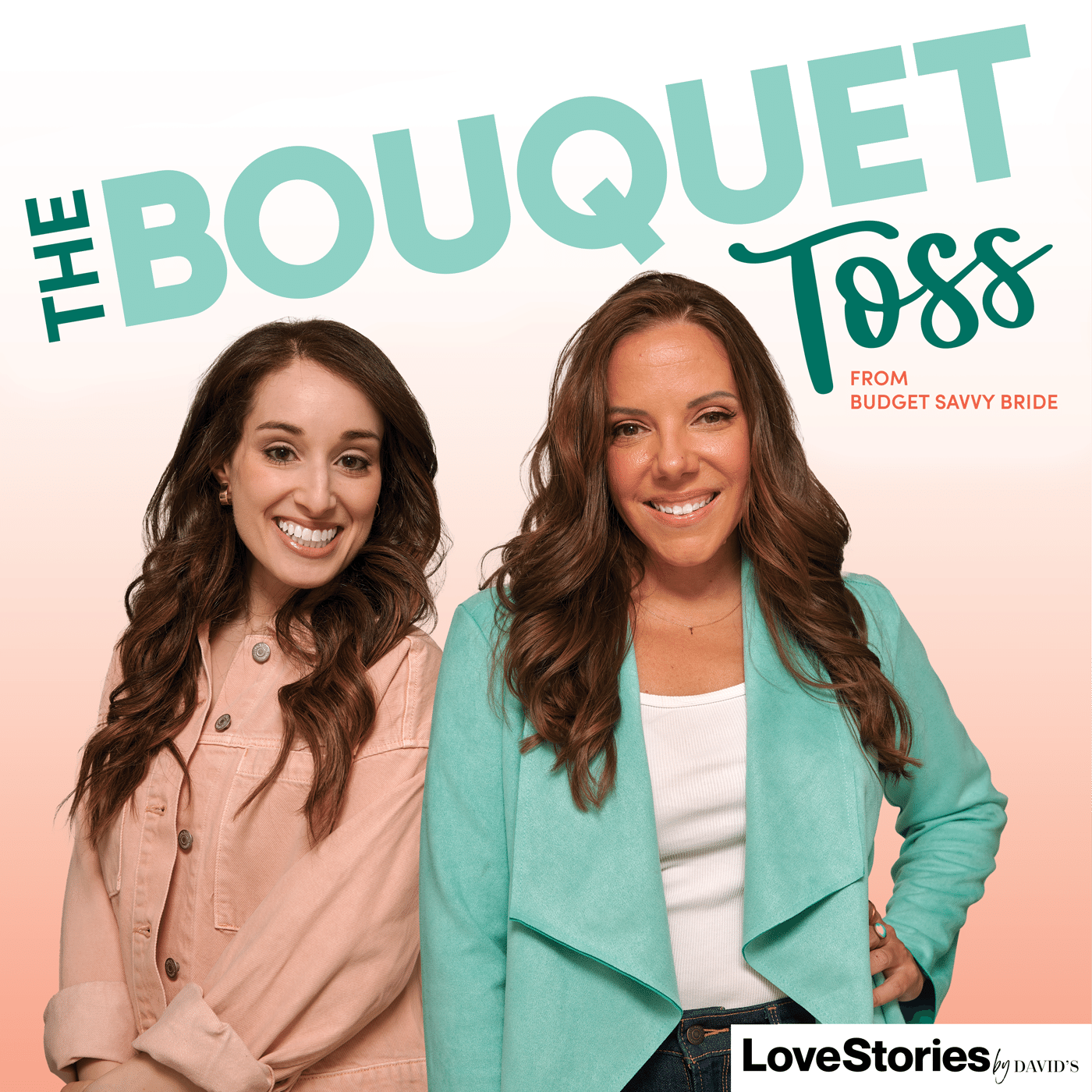
The Bouquet Toss - A Wedding Planning Podcast
The Budget Savvy Bride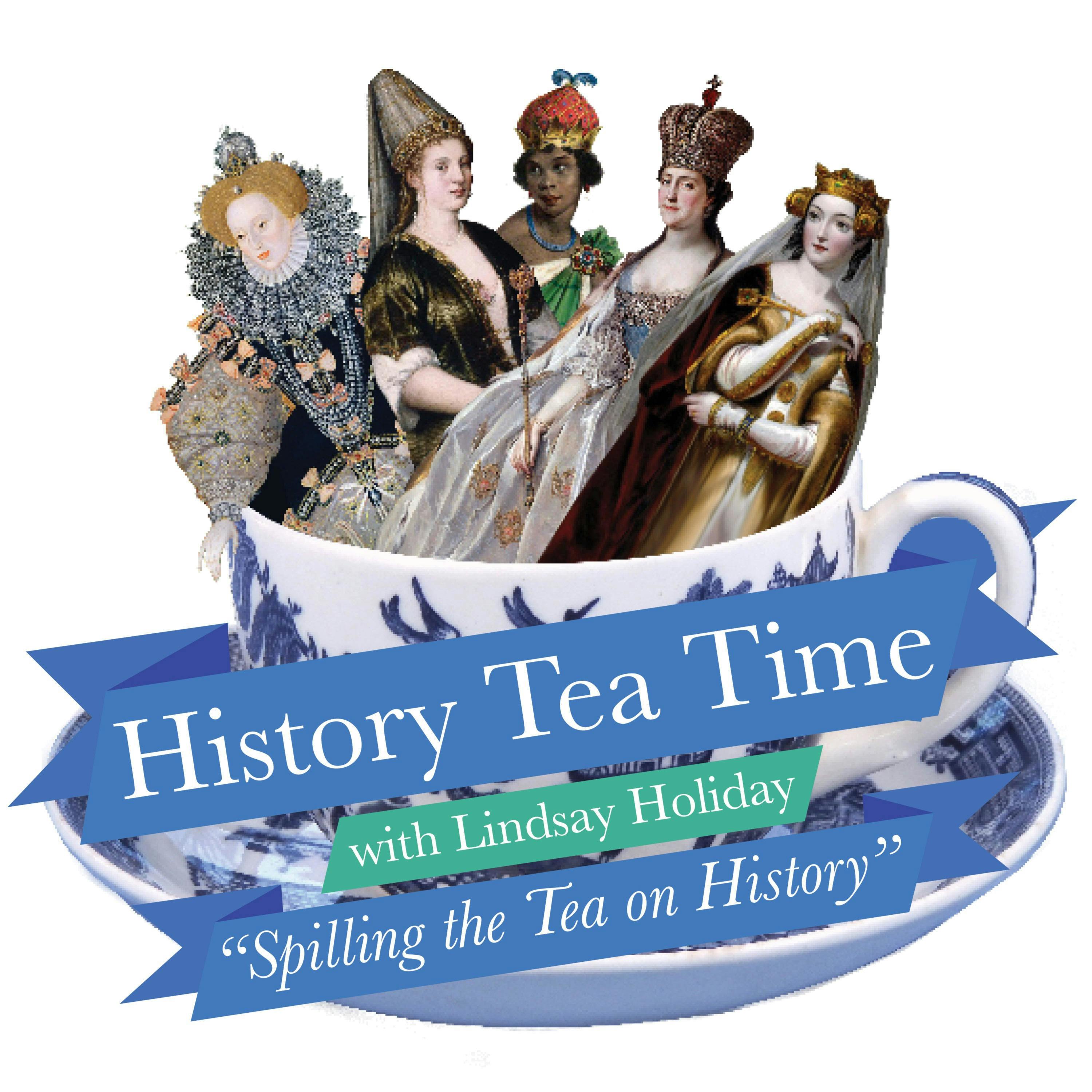
History Tea Time
Lindsay Holiday
Queens Podcast
Queens Podcast
Office Ladies
Audacy & Jenna Fischer and Angela Kinsey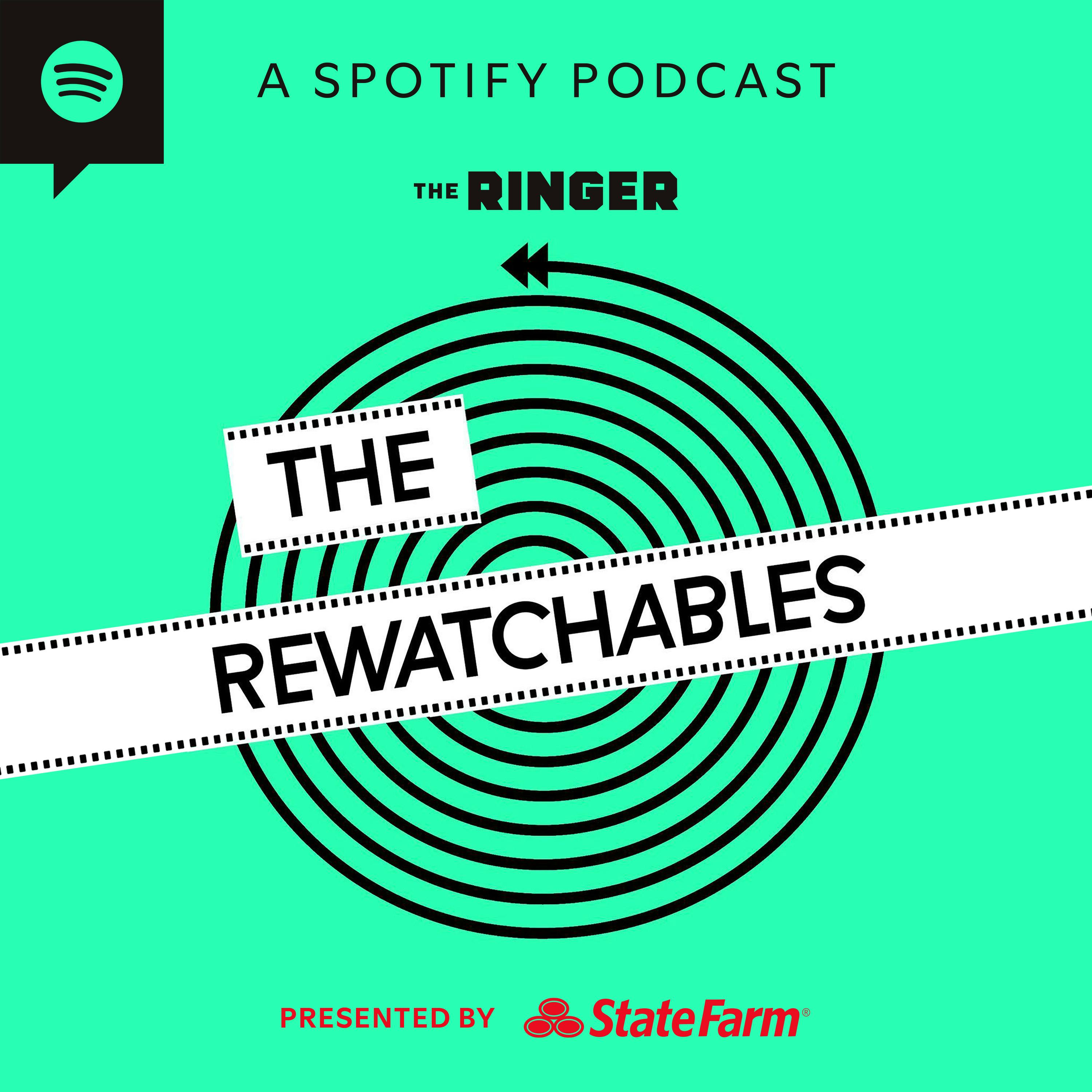
The Rewatchables
The Ringer
This is History: A Dynasty to Die For
Sony Music Entertainment